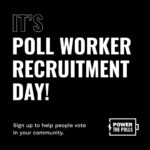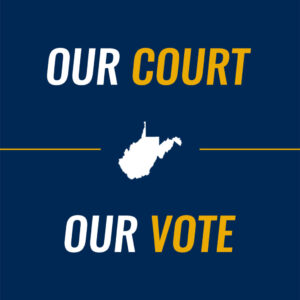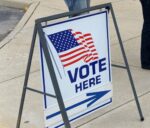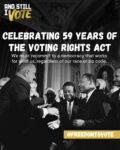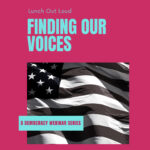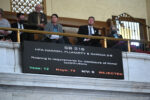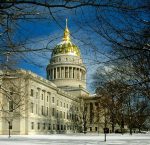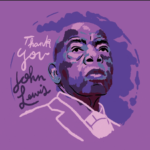Election Day: The Countdown is On and You Can Help Move Others to Action!
In the 2020 primary election, West Virginians across the state will be able to exercise their right to vote for an unprecedented three out of five justices on the WV Supreme Court. We need your help getting the word out about www.wvcourtelections.org/ and we only have 10 days left to do so.
You can help make certain voters are informed for this crucial election!
1. Help spread the word on social media. Click here for sample posts and graphics you can share.
2. Write a letter to the editor. See sample letters to the editor below; feel free to tweak into your own words. Plus, check out these other resources:
- Watch a Webinar on How to Write Letters to the Editor
- West Virginia Letter to the Editor (LTE) Toolkit (with contact information for many WV papers)
- Messaging Guide: Communicating About America’s Courts
Why Should I Help Get the Word Out?
At a critical time when West Virginia should be working to restore confidence and trust in our state Supreme Court, shadowy organizations that want to use the courts to further their own political, ideological, or financial agendas are back to their dirty tricks — trying to manipulate and sway voters with nasty, misleading attack ads.
Ironically, this historic election, in which we will elect an unprecedented three out of five justices to our state’s highest court, falls one day after the anniversary of the US Supreme Court’s decision in Caperton v. Massey. For those who aren’t familiar with the case, it all started with a coal baron named Don Blankenship, who at the time was CEO of Massey Energy. In 2004, Blankenship spent more than $3 million to elect his preferred candidate, Brent Benjamin, to the WV Supreme Court of Appeals, while his company had a $50 million judgment against it pending on appeal to the Court.
Justice Benjamin went on to be the deciding vote, twice, to overturn the lower court verdict against Massey. This led to the plaintiff in the case, Hugh Caperton, to appeal to the U.S. Supreme Court, which ultimately ruled (in 2009) that Benjamin should have recused himself from the case because Blankenship’s support posed a risk of bias in the case.
Unfortunately, more than 10 years later, neither the Legislature nor the state Supreme Court have tackled the erosion of the public’s confidence in the Court as a neutral and unbiased arbiter, and the resulting perception that interested parties can sway the court system in their favor. These systemic issues could be addressed by strengthening disclosure of political spending and the adoption of a strong, objective recusal standard.
This moment is an opportunity to bring greater trust, accountability, and transparency to the judiciary, but rebuilding trust in the judiciary cannot end with a single individual. As voters, it’s incumbent upon us to seek out unbiased information about the candidates rather than relying on misleading, inaccurate attack ads. That’s why we partnered with the WV Consumer Protection Alliance on the voter education website, https://www.wvcourtelections.org/, where voters can learn more about the Supreme Court candidates in their own words. The League of Women Voters of West Virginia also has a non-partisan voter guide, which can be found at https://lwvwv.org/ along with candidate information compiled from various media outlets.
The court and legislators must also seize this opportunity. To begin to rebuild trust in the West Virginia judiciary, we must shed light on the money that is being spent behind voters’ backs to influence our elections, and remove conflicts of interest from our courts by adopting an objective recusal standard.
Don’t be fooled, be informed, educate others, and be certain to cast your vote on or before June 9. Click here or visit GoVoteWV.com to learn more about your voting options.
Sample letters to the editor to tweak into your own language:
LETTER: Before voting for high court justices, visit this website
Vote to safeguard our democracy
In a representative democracy, we elect officials to make decisions on our behalf, trusting they will do that work to the best of their ability, consistent with their oath of office. However, sometimes that sworn duty isn’t enough to safeguard against abuse of power; a healthy democracy relies on a distribution of power between the legislative, executive, and judicial branches of government to provide those checks and balances.
The upcoming West Virginia primary is an important election for exactly that reason: On June 9, West Virginians will return mail-in ballots or head to their polling places to decide one of the most important but poorly understood aspects of this election—our court system.
The primary election presents a far-reaching opportunity to select justices to fill three of the five vacancies on the state Supreme Court. It’s the court’s job to objectively interpret the constitutionality of law and protect citizens from government overreach and abuse of power. That means that it’s our job as West Virginians to make well-informed decisions about who fills these positions.
As a West Virginia voter, I found the website www.wvcourtelections.org to be a useful, unbiased resource and would recommend visiting for more information about our judicial candidates.


